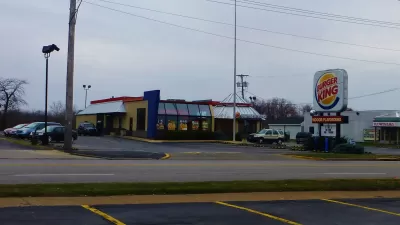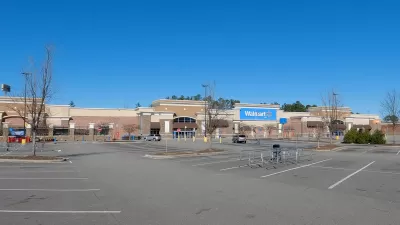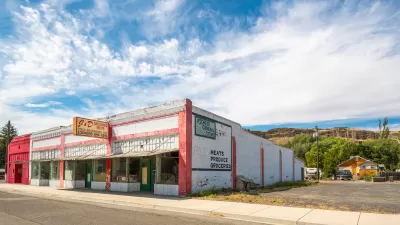Quartz makes the point that supermarkets alone won't solve the problem of poor diets among low-income Americans.

Deena Shanker responds to recent analysis by the Associated Press about the tendency of major grocers to avoid opening up new stores in food deserts.
That "doesn’t speak well of the supermarket industry’s efforts to help convert the nation’s nutritional wastelands into bastions of healthier eating," writes Shanker, referring to a 2011 pledge by a group of major food retailers to open 1,500 new stores in neighborhoods with no supermarkets by 2016. The food retailers have fallen short of that pledge, made as part of First lady Michelle Obama's "Let's Move" healthy eating initiative,
"But putting the focus on retailers misses the bigger picture," according to Shanker: "Supermarket access is just one piece of why low-income Americans tend to eat less healthy diets than higher-income Americans."
To make that case, Shanker cites data from a study by the U.S. Department of Agriculture (USDA) [pdf] into the relationship between food access and food choices. The report found that low-income shoppers simply make different food choices—even when access to better foods is available—but that price has little with those choices. The article goes on to explain some of the multiple solutions that can help address the challenge of obesity and diet quality, as they actually exist.
FULL STORY: It’s easy—but wrong—to blame supermarkets for food deserts

Maui's Vacation Rental Debate Turns Ugly
Verbal attacks, misinformation campaigns and fistfights plague a high-stakes debate to convert thousands of vacation rentals into long-term housing.

Planetizen Federal Action Tracker
A weekly monitor of how Trump’s orders and actions are impacting planners and planning in America.

In Urban Planning, AI Prompting Could be the New Design Thinking
Creativity has long been key to great urban design. What if we see AI as our new creative partner?

Pedestrian Deaths Drop, Remain Twice as High as in 2009
Fatalities declined by 4 percent in 2024, but the U.S. is still nowhere close to ‘Vision Zero.’

King County Supportive Housing Program Offers Hope for Unhoused Residents
The county is taking a ‘Housing First’ approach that prioritizes getting people into housing, then offering wraparound supportive services.

Researchers Use AI to Get Clearer Picture of US Housing
Analysts are using artificial intelligence to supercharge their research by allowing them to comb through data faster. Though these AI tools can be error prone, they save time and housing researchers are optimistic about the future.
Urban Design for Planners 1: Software Tools
This six-course series explores essential urban design concepts using open source software and equips planners with the tools they need to participate fully in the urban design process.
Planning for Universal Design
Learn the tools for implementing Universal Design in planning regulations.
planning NEXT
Appalachian Highlands Housing Partners
Mpact (founded as Rail~Volution)
City of Camden Redevelopment Agency
City of Astoria
City of Portland
City of Laramie





























